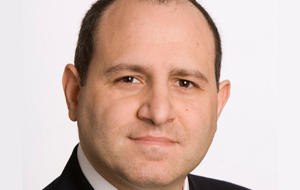Imagine how much time and energy we would've saved in our careers if we only knew in our 20s what we know now. To pay it forward to future IT leaders, we asked several CIOs and IT executives to share one thing they wish they had known before taking their first IT leadership role. Pass this on to anyone on your team who's looking to move up the leadership ladder. Learn even more tips in the first of this hindsight series.
1. Tie technology to business objectives
 "In my first IT leadership role, I thought I was supposed to be focused on the technology only. In the many years since, I’ve learned that if your employer doesn’t understand IT, they want it off their plate and to have somebody else just take care of it. The real secret of adding value, though, is not to focus just on technology but how to tie that technology to business objectives. If I’d known that, I would have spent more time learning the business — understanding each department’s bread and butter — rather than just becoming an expert at IT. Without an understanding of your business’s approaches and goals, the best you can do as an IT person is control costs, rather than adding value by connecting the dots between technology and the business."
"In my first IT leadership role, I thought I was supposed to be focused on the technology only. In the many years since, I’ve learned that if your employer doesn’t understand IT, they want it off their plate and to have somebody else just take care of it. The real secret of adding value, though, is not to focus just on technology but how to tie that technology to business objectives. If I’d known that, I would have spent more time learning the business — understanding each department’s bread and butter — rather than just becoming an expert at IT. Without an understanding of your business’s approaches and goals, the best you can do as an IT person is control costs, rather than adding value by connecting the dots between technology and the business."
- Peter Markos is Chief Information Officer of Rotary International
2. Courage
 "I think what is paramount as an IT leader, as a CIO, is to have the courage to reinvent yourself and do things differently. To adopt new technology and to select new suppliers even if they are not ones with three big letters."
"I think what is paramount as an IT leader, as a CIO, is to have the courage to reinvent yourself and do things differently. To adopt new technology and to select new suppliers even if they are not ones with three big letters."
-Chantal Belzile is Senior Vice President and Chief Information Officer of Business Development of Canada
3. The business drives technology
 "In my early days in IT, I wish I’d known that the business drives technology, not the other way around. Technology is the last part of the equation. I was low on the totem pole at the time, so it was okay. I didn’t blow anything up because of that. But even with entry-level people today, we don’t like to see that attitude and work to correct it."
"In my early days in IT, I wish I’d known that the business drives technology, not the other way around. Technology is the last part of the equation. I was low on the totem pole at the time, so it was okay. I didn’t blow anything up because of that. But even with entry-level people today, we don’t like to see that attitude and work to correct it."
- Stuart Kippelman is Chief Information Officer of Platform Specialty Products Corp.
4. Pretend you are entry-level
 "New IT leaders should treat their role almost as if they are entry-level once again. Don’t feel above asking tons of questions, getting to know everyone on staff on a more personal level, and learning as much as possible about the technical landscape. It’s amazing how often I talk to senior IT leadership who are not able to explain their IT infrastructure."
"New IT leaders should treat their role almost as if they are entry-level once again. Don’t feel above asking tons of questions, getting to know everyone on staff on a more personal level, and learning as much as possible about the technical landscape. It’s amazing how often I talk to senior IT leadership who are not able to explain their IT infrastructure."
- Blake Angrove is Director of Technology Recruiting Services at LaSalle Network
5. It's the people who make the difference
"It’s the individuals who make the difference. I grew up working in my family’s grocery stores and respected from an early age that if the staff are happy and motivated, then the business will thrive. That maxim is as true inside a multi-million dollar tech company as it is inside a grocery store. It can equally apply to customers: if they trust you to tackle their tech issues, you are half way to winning a business relationship."
- Todd DeLaughter is the Chief Information Officer for Automic
6. Speak the language
 "When I started my career, the first thing I did was to say, 'I want to be on the business analyst side to understand the business first.' Nearly 30 years later, I think this mantra still holds. The only way you’re going to be able to have a meaningful interchange with others in your company is if they respect that you can talk their language. As a football guy, I think of it like this: if you’re the quarterback, you have to know what everybody should do on every play, at every position. And at the end of the day, I do think that when it comes to process, we, in IT, are the people that are really in the best position to understand that. Even if we’re a bit more like offensive coordinators rather than quarterbacks. Today, if I were going to tell somebody going into a CIO job what to do first, it would be to focus really on what cross-functional means in your organization. Even today, as an IT guy, it’s still easy for me to fall into infrastructure speak. Then, you lose people because not everybody understands IT."
"When I started my career, the first thing I did was to say, 'I want to be on the business analyst side to understand the business first.' Nearly 30 years later, I think this mantra still holds. The only way you’re going to be able to have a meaningful interchange with others in your company is if they respect that you can talk their language. As a football guy, I think of it like this: if you’re the quarterback, you have to know what everybody should do on every play, at every position. And at the end of the day, I do think that when it comes to process, we, in IT, are the people that are really in the best position to understand that. Even if we’re a bit more like offensive coordinators rather than quarterbacks. Today, if I were going to tell somebody going into a CIO job what to do first, it would be to focus really on what cross-functional means in your organization. Even today, as an IT guy, it’s still easy for me to fall into infrastructure speak. Then, you lose people because not everybody understands IT."
- Brian Beams is Vice President of IT & Business Resilience at Pharmavite
7. Build relationships
 "When you’re starting out in your IT career, it’s important to reach out and build relationships. I realize that it may feel difficult to do because you might be just out of school and a little bit introverted or insecure. But if I look back at my career, I wish I could have started sooner to build a network both within the company and outside of it.
"When you’re starting out in your IT career, it’s important to reach out and build relationships. I realize that it may feel difficult to do because you might be just out of school and a little bit introverted or insecure. But if I look back at my career, I wish I could have started sooner to build a network both within the company and outside of it.
I think about some of the mentors I had, one of whom said, 'I want you to get away from your desk for a day every week and just spend time with these execs.' That was a real eye-opener for me, and it helped shape my career. If he hadn’t made that suggestion, I’m not sure I would’ve gotten the business knowledge I needed.
It’s a two-way street, of course. A couple of weeks ago, somebody said to me, 'My daughter is an intern here. She’d love to meet you because she’s read some of your blog posts.' And I said, 'Absolutely. I’ll spend time with her.' And we had a great chat. Remember that people won’t say no when you ask. And if they did say no, they’re probably not somebody that you want to have mentor you anyway."
- Cynthia Stoddard is the Senior Vice President and Chief Information Officer of NetApp
8. Communication is critical
 "One thing I wish I’d known sooner in my IT career is the amount and frequency of communication, and the different levels of communication, that you have to do. And I mean, continuous communication, the same way a politician works.
"One thing I wish I’d known sooner in my IT career is the amount and frequency of communication, and the different levels of communication, that you have to do. And I mean, continuous communication, the same way a politician works.
Before I took my first big IT role, I knew I had to articulate a strategy and mission, but I didn’t realize how important it was to communicate successes consistently. If you don’t, you’ll run into situations where audiences in your company will request things that may already exist. You don't want to have to step up and say, ‘but that was deployed three or four months ago. And in fact, this very department is using it.’ You just can’t assume that people know. Sometimes I feel the need for a communications person just for IT. People need to know that you’ve accomplished what you set out to do.
The second thing that keeps coming to the fore as something I wish I’d known more about sooner is security. We used to think of it in the same way we think of business continuity planning – it’s only at the front of your mind when you’ve got a disaster on your hands. But as IT moves more and more to the front office and we try to enable the Internet of Things, we need to think about security and privacy regularly."
- Houston Ross is Chief Operations Officer and Board Member for the Czech Republic and Slovakia of NN Life Insurance, Ltd.









